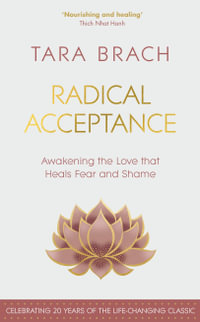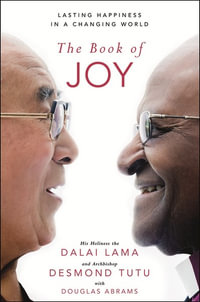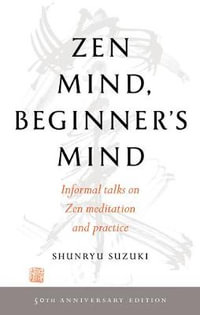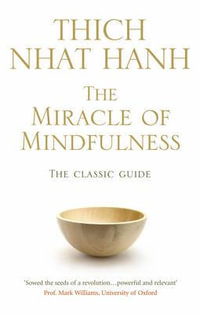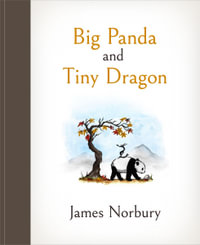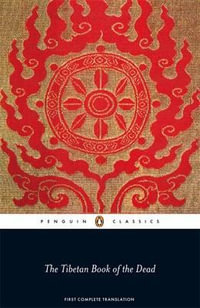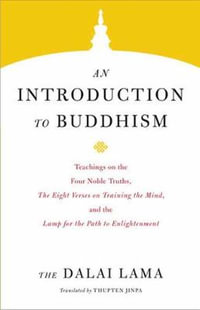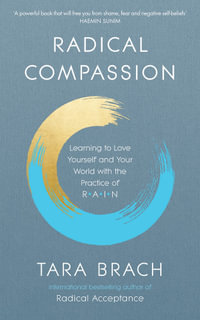
The Buddha's Guide to Gratitude
The Life-changing Power of Every Day Mindfulness (Stillness, Shakyamuni Buddha, for Readers of You are here by Thich Nhat Hanh)
By: Becca Anderson, His Holiness the Dalai Lama (Foreword by)
Paperback | 15 August 2019
At a Glance
Paperback
RRP $33.15
$22.90
31%OFF
When will this arrive by?
Studies show-and experts counsel-that gratitude is a key component of our own happiness. People who are grateful about events and experiences from the past, who celebrate the triumphs instead of focusing on the losses or disappointments, tend to be more satisfied in the present. In a lecture, Buddhist leader Thich Nhat Hanh stated, "With all I have experienced in my own life, the power of gratitude stands above everything else. In your mindfulness practice, use gratitude until it becomes your way of life."
Gratitude moves us to do all kinds of things inspired by joy. Gratitude can help us transform our fears into courage, our anger into forgiveness, our isolation into belonging, and another's pain into healing. Saying "Thank you" every day will create feelings of love, compassion, and hope. But the fact is, the art of living-for that is what we speak about when we speak of gratitude-isn't something that comes naturally to most people. Most of us need to work intentionally to increase the intensity, duration, and frequency of positive, grateful feelings-a daunting challenge indeed. But fear not, this workbook is here to help! Inside we have provided you with mindful meditations, hands-on exercises, profound practices, inspiring quotations, space for writing, thought-provoking questions, and even positive "power tools" that will help you build a more grateful life.
From the book:
"Gratitude is one of the loveliest paths to personal growth. It can be subtle; after contemplating what it is to approach your life-thankfulness, you may find that you have the "half-full mindset." Maybe instead of worrying Sunday nights about work and meetings and goals, you relax and remember to be grateful to have work you really enjoy. Next thing you know, your co-workers will pick up on the fact that you were less stressed out and more fun to be around, and your desk becomes on oasis of positivity in the office.. Your family responded in kind, and your home is a calmer, happier place filled with calmer, happier people. Your friends who used to call you and complain about life now call and tell you all the good things happening. That one took a while but your aura of gratefulness eventually took hold and bloomed.
You, my friend, have an attitude of gratitude and are making the world a better place.
Well done, and please allow me to be the first to say thank you. I guarantee you, I won't be the last. I am a big one for setting intentions and do so every morning. I intend you grow and soar in your wisdom and, if some of the ideas, quotes, and suggestions from the "gratitude gurus" included in this book inspire you, all the better."
About the Author
Becca Anderson is a writer, gardener and teacher living in the San Francisco Bay Area. Originally from Ohio, Becca's background in sustainability and landscaping inspired her to become a part of the seed-saving and seed-sharing community with chapters across the US and Canada. Becca Anderson credits her first grade teacher as a great inspiration and runs several popular classes and workshops including "How to Put Your Passion on Paper." Anderson and is currently at work on a book about the healing power of gardening.
ISBN: 9781633538047
ISBN-10: 1633538044
Series: Becca's Self-Care
Published: 15th August 2019
Format: Paperback
Language: English
Number of Pages: 202
Audience: General Adult
Publisher: Mango Media
Country of Publication: US
Dimensions (cm): 17.5 x 12 x 1.5
Weight (kg): 0.21
Shipping
| Standard Shipping | Express Shipping | |
|---|---|---|
| Metro postcodes: | $9.99 | $14.95 |
| Regional postcodes: | $9.99 | $14.95 |
| Rural postcodes: | $9.99 | $14.95 |
How to return your order
At Booktopia, we offer hassle-free returns in accordance with our returns policy. If you wish to return an item, please get in touch with Booktopia Customer Care.
Additional postage charges may be applicable.
Defective items
If there is a problem with any of the items received for your order then the Booktopia Customer Care team is ready to assist you.
For more info please visit our Help Centre.

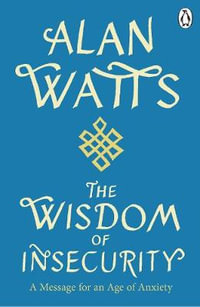
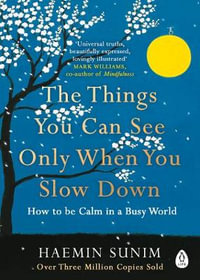
![When Things Fall Apart : Heart Advice For Difficult Times [Thorsons Classics edition] - Pema Chodron](https://www.booktopia.com.au/covers/200/9780007183517/5907/when-things-fall-apart.jpg)



